By 21CLEO Research Team
In earlier blog posts, we talked about how we are using persona as a research tool and our process for creating personas. As noted in our earlier blog posts, working learners participate in employer-sponsored learning opportunities for a variety of reasons. We’ve previously shared the personas of people who were learning foundational skills: Neberu: Working to feel comfortable interacting with English speakers and Alimayu: College-educated retail worker learning English. We’ve also written about workers trying to satisfy a job requirement, Elise: Juggling Work, Required Training, and Long-Term Goals. In this post, we share our fourth persona, this one based on people who are working to earn a degree or certificate.
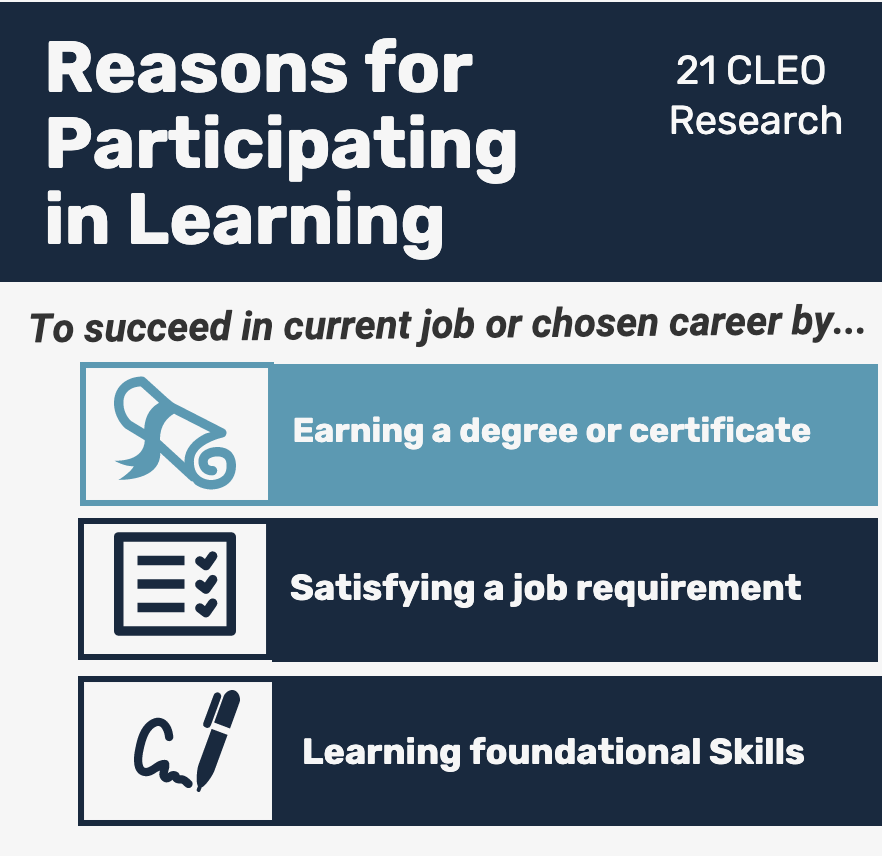
Working toward an AntiRacist Lens
Before we dive in, it’s important to note that midway through the analysis that led to the development of these personas, historic events lead us to rethink how we were approaching our data. These events include the Covid-19 pandemic, which put a clear light on economic inequities, and the racial reckoning sparked by the murders of George Floyd, Breonna Taylor and other Black, Indigenous, and People of Color by the police. We will soon offer a full account of how our data analysis shifted in light of those events; for now, understand that we developed both this persona and the next one with heightened sensitivity that our lens as white women complicates and limits our understanding of the lived experience of the front-line service workers we interviewed – many of whom were people of color.
Meet Regina.
Regina is a frontline healthcare worker seeking to establish a career. As a high school graduate trying to figure out her next steps in life while balancing work, school, and family, Regina is struggling. Although she gets help from many different sources, barriers like employer policies, job advancement possibilities, and the structure and content of training don’t always make it easy to find and follow career development options that work for her. We hope meeting Regina helps key stakeholders within employer-supported learning opportunities better understand the perspectives and experiences of working learners and makes clear that learning and employment opportunities need to align with the skills, experience, and other strengths workers possess.
The first day I went to the class, I left so overwhelmed because that day, I didn’t understand, like almost anything. And I was like, oh, no, I’m not gonna be able to continue with this. I’m gonna have to give up. and she [career navigator] was like no, you have to keep trying and anything that you need, I’m gonna be here for you. Just don’t worry and keep trying. If not, I’m gonna, I’m gonna see how I can help you out.
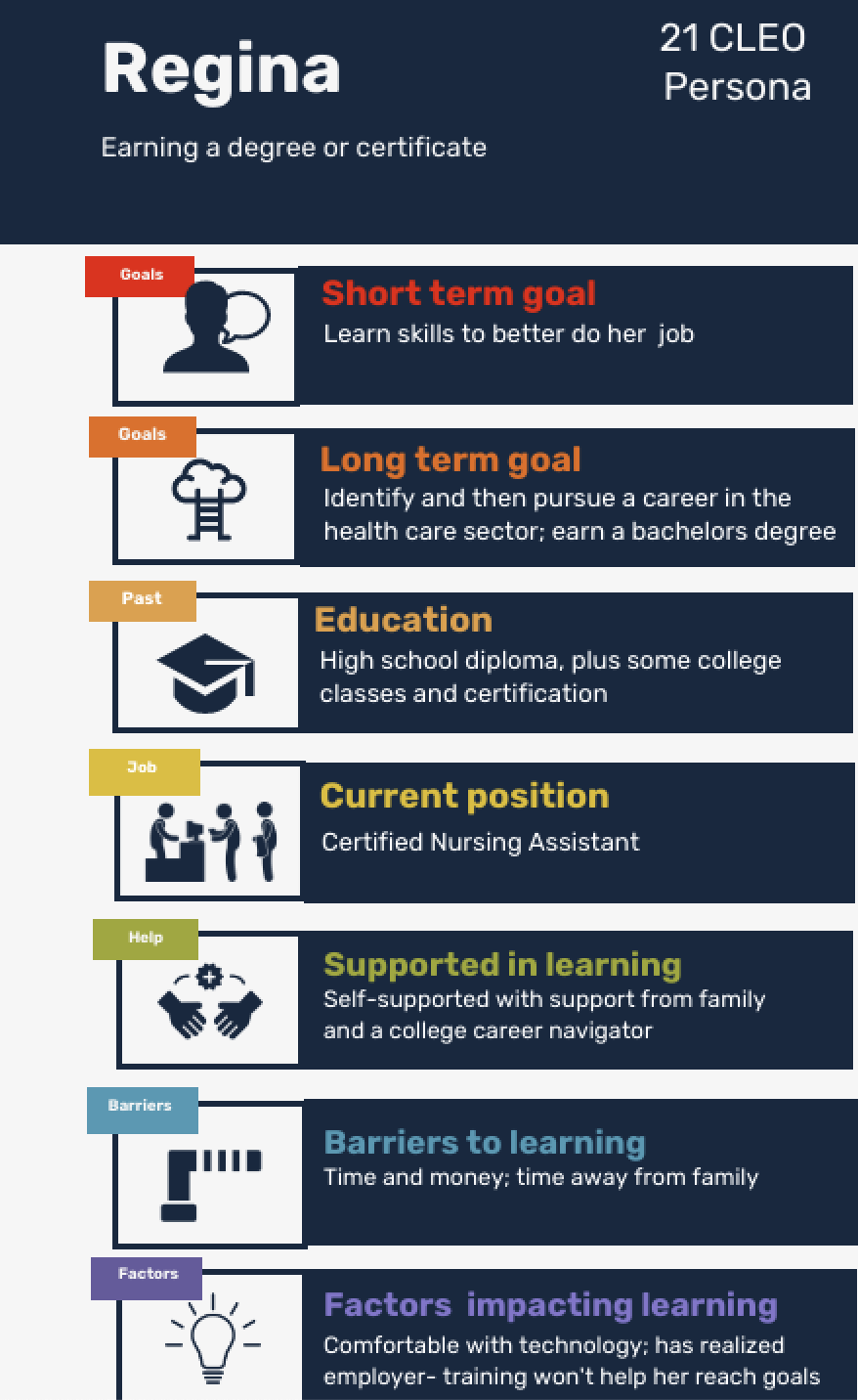
Regina graduated from high school a few years ago and held a series of entry level jobs before finding work at a retirement facility. She was able to take advantage of an employer training program to take classes to become an Certified Nursing Assistant; it was that perk that encouraged her to take the job and encourage friends to apply for jobs there as well. She is a Spanish-English bilingual, but feels limited at work by her current English proficiency and computer skills. Because of this, she has been taking English classes and is also taking financial literacy classes, on top of training required to keep her job. In addition, she is using financial aid to take classes at the local community college that will prepare her for credit-based courses in health care, but she has not yet decided what course of study she wants to pursue.
Access to a computer and the internet has been very important for all of Regina’s coursework. She has a laptop and internet at home that she uses for her nonwork related coursework, and at times she will use the computers at the community college library. She uses her employer’s computer to take mandatory training. Regina has not experienced any problems with technology that prevent her from completing her assignments.
All of the different courses and training Regina takes offer different opportunities. Regina’s retirement facility job requires company-specific training. Though she’s not certain she wants to work in the setting as a career, she sees the mandatory training as helping her perform her tasks at work. She says the ESL and financial literacy classes help her more fully engage in daily life tasks. Her community college classes are intended to move her toward her goal of becoming a healthcare professional, although she has not yet decided what specific field she is interested in. She has considered goals like becoming a registered nurse, phlebotomist pharmacy tech, or pharmacist.
Regina has a child and says it is her religious faith along with the support of her mother and grandmother that helps her persevere as she struggles to work fulltime and complete her courses. A career navigator has also been instrumental in helping Regina find her way through the system, identifying learning opportunities that will be helpful, and encouraging her when she gets discouraged.
The most significant barriers for Regina are a lack of time, money, and confidence. As she noted, “Every day I just, I get home. I was so tired. I just want to sleep.” However, she engages in a great deal of positive talk and is motivated by the need to make a better life for her child. One of the reasons she takes other courses is that she has realized that the required training at work is not enough to get her into the career she wants to have some day.
Read more about our 21st Century Learning Ecosystem Opportunities (21CLEO) research here.

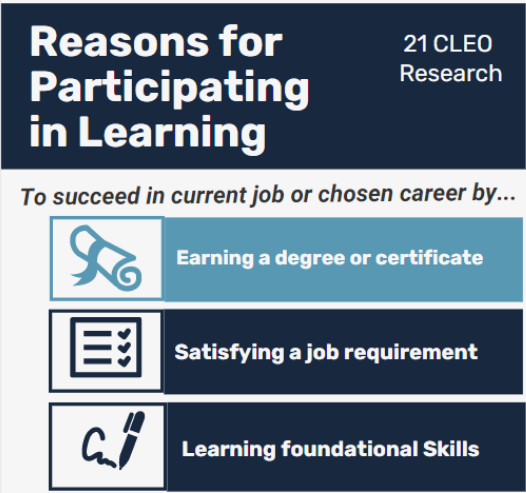
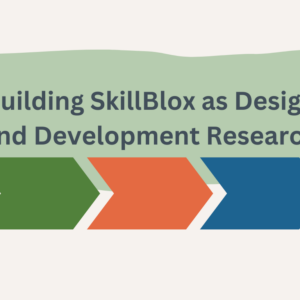
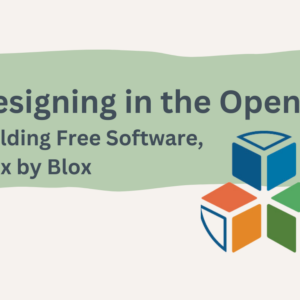
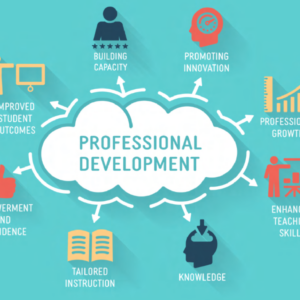
2 Comments.
This profile is interesting and sounds very realistic but it doesn’t help me understand what should be different in employer-focused education & training – the main goal of your study, I thought – for a person like Regina. How does it deepen our understanding the reasons people participate in employer-sponsored learning? What are we supposed to take away from Regna’s experience in terms of system level applications?
Silja – great question. These persona are crafted based on the data we collected and analyzed from many interviews. We see this as the beginning of this work – we’re flagging the needs and experience of a “typical learner”. As we learn more from our ecosystem research, we will be able to connect these persona to the characteristics of employer-support training and education that would work for such a learner. We’re so glad you’re interested and hope you continue to follow the conversation!